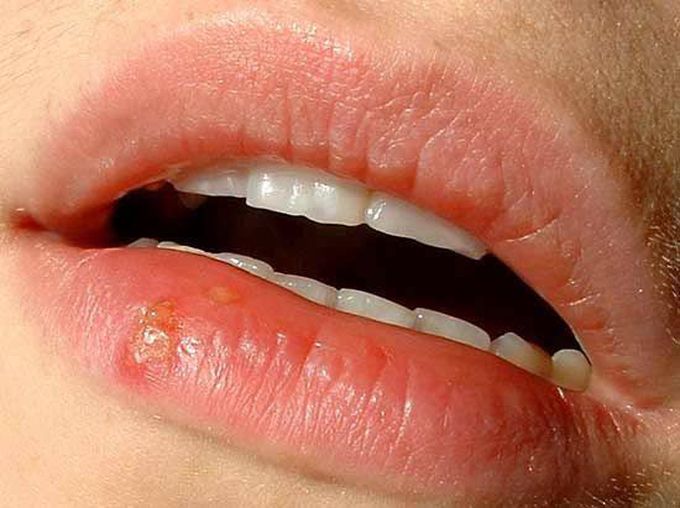

Herpes labialis
What is Herpes Labialis? Download PDF Copy By Sally Robertson, B.Sc. Herpes labialis or oral herpes is an infection of the mouth area that causes small, painful blisters to develop on the lips, gums or throat. These blisters are caused by the herpes simplex virus, a common and highly contagious virus that infects most people in the U.S by time they reach the age of 20. There are three stages of infection that occur in oral herpes, which include the primary infection, the latency period and recurrence. During the initial stage of infection, the virus enters the skin or mucosal membrane, where it then reproduces. Blisters and other symptoms such as fever may develop, although the virus sometimes does not cause any symptoms. After primary infection, the virus lies dormant inside the nervous tissue of the spine where it reproduces but remains inactive. Later in life, the virus can reactivate, particularly in cases of emotional or physical distress, and lead to the development of further sores and symptoms. When this occurs, a person is said to have recurrent oral herpes. Recurrent herpes is not a serious condition, but many people use over-the-counter treatments to relieve their symptoms, which usually resolve within a few weeks. In some people, the cold sores recur around two or three times every year, while other people only experience a cold sore once and never again. In general, recurrent infections lead to milder symptoms than primary infection.
